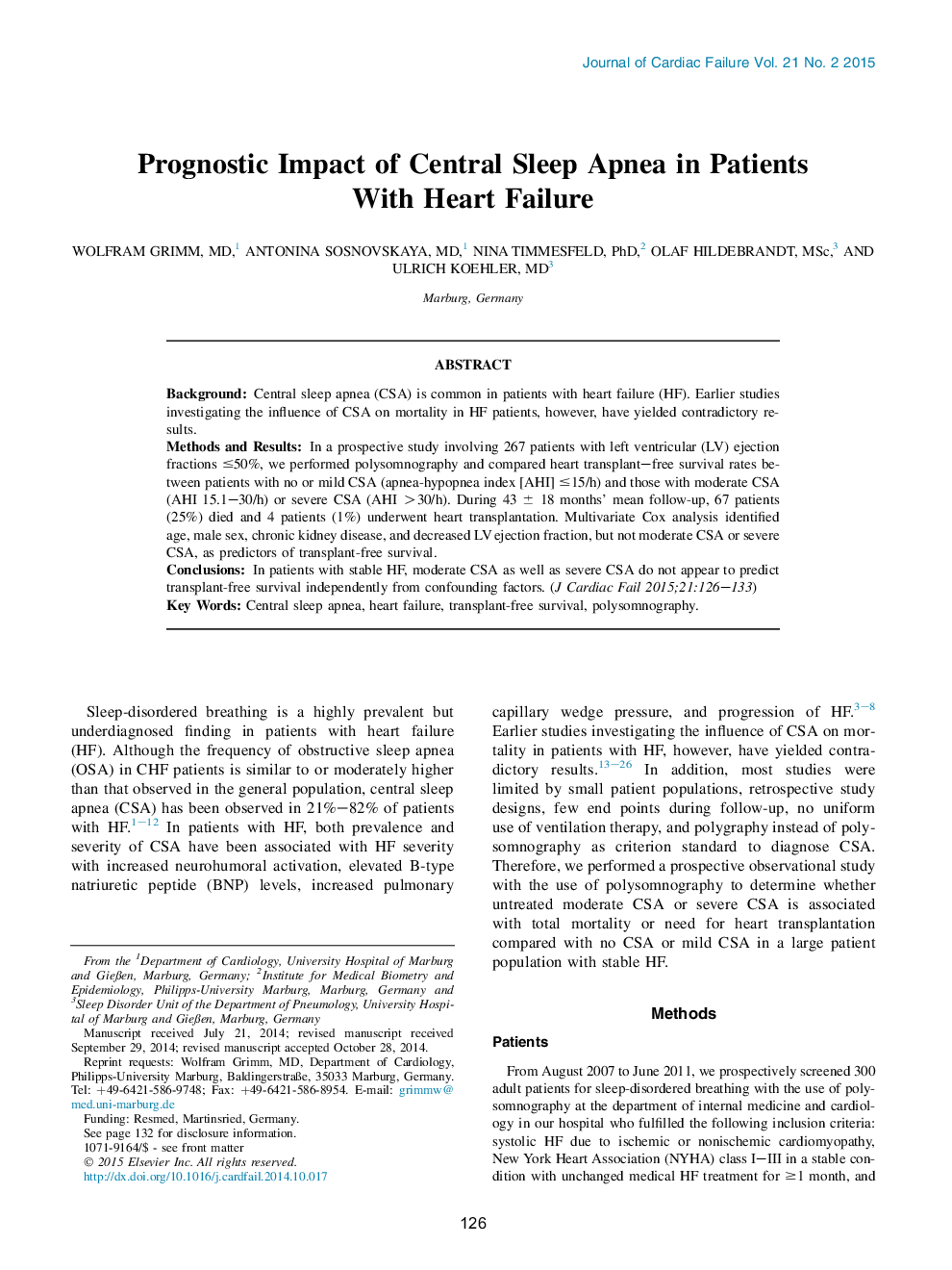| Article ID | Journal | Published Year | Pages | File Type |
|---|---|---|---|---|
| 2959060 | Journal of Cardiac Failure | 2015 | 8 Pages |
•Cardiorespiratory polysomnography revealed a high prevalence of CSA of 43% in 267 patients with stable heart failure in NYHA functional class I, II or III.•Age, male sex, chronic kidney disease, and LV ejection fraction, but not moderate CSA or severe CSA, appear to be independent predictors of transplant-free survival.•Our findings support the hypothesis that CSA is merely a marker for HF severity rather than a risk factor for an adverse prognosis in HF patients.
BackgroundCentral sleep apnea (CSA) is common in patients with heart failure (HF). Earlier studies investigating the influence of CSA on mortality in HF patients, however, have yielded contradictory results.Methods and ResultsIn a prospective study involving 267 patients with left ventricular (LV) ejection fractions ≤50%, we performed polysomnography and compared heart transplant–free survival rates between patients with no or mild CSA (apnea-hypopnea index [AHI] ≤15/h) and those with moderate CSA (AHI 15.1–30/h) or severe CSA (AHI >30/h). During 43 ± 18 months' mean follow-up, 67 patients (25%) died and 4 patients (1%) underwent heart transplantation. Multivariate Cox analysis identified age, male sex, chronic kidney disease, and decreased LV ejection fraction, but not moderate CSA or severe CSA, as predictors of transplant-free survival.ConclusionsIn patients with stable HF, moderate CSA as well as severe CSA do not appear to predict transplant-free survival independently from confounding factors.
